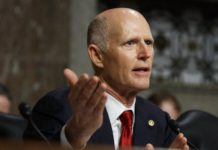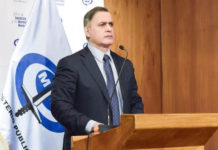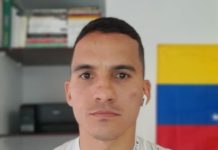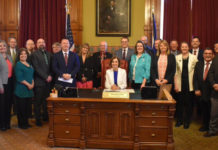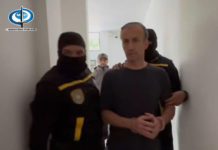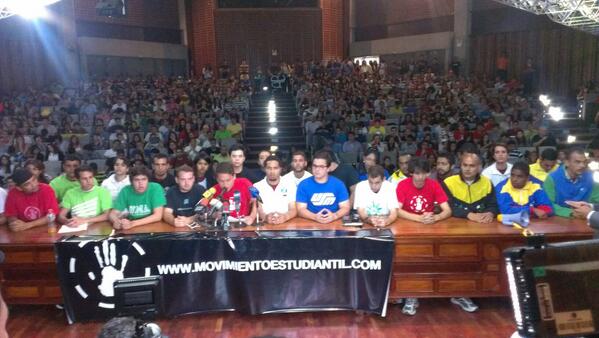
MIAMI — Take a quick glance at the situation in Venezuela, and it appears that the unrest that has simmered throughout the country since January has reached its peak.
The government of President Nicolás Maduro, which has spent months censoring broadcasts and news accounts of the protests against it, recently agreed to televise a series of negotiations with opposition leaders. The opposition movement has fractured, the death toll has plateaued at about 40 and there were fewer mass demonstrations last weekend as Venezuelans took a break to celebrate Easter.
“I cry,” says Gerardo Resplandor, a 23-year-old industrial engineering student from eastern Venezuela who has been protesting for months. “Last night, I felt, ‘What’s the point? We’re killing ourselves in the streets and there is still so much indifference.'”
But Resplandor, who has been living in a makeshift tent city with dozens of other students outside a United Nations building in Caracas, says their efforts are far from over. Dozens of student organizers met in Caracas this week to coordinate the next wave of protests. They have marches planned for Friday and Saturday. And, as Resplandor explains, the fundamental problems that triggered the protests remain unchanged.
“We’ve been hungry, we’ve been thirsty. I haven’t seen my father for three months. Mother’s Day is coming in two weeks, and we won’t be with them,” he says. “But that’s part of the sacrifice. The protests live on.”
A group of university students upset about deteriorating security conditions in western Venezuela, and angered by the government’s crackdown on the demonstrations, started what has become a three-month protest. Venezuela’s economy has tanked since the death of former leader Hugo Chávez in March 2013, with inflation skyrocketing and basic goods becoming nearly impossible to find.
As the demonstrations mushroomed, political leaders opposed to Maduro’s government have jumped on board. Leopoldo López turned himself in to authoritiesafter he was charged with conspiracy and murder charges for his role leading the protests — charges he denies as he remains in prison. Henrique Capriles, who narrowly lost last year’s disputed presidential election by less than 1.5% of the vote, has led the negotiations with Maduro’s government.
Opposition leaders and the student movement share many goals.They want the Maduro government to free those who have been arrested during the protests, disarm the government security agents who have been battling with protesters and end the media blackout that has left many Venezuelans in the dark about the ongoing upheaval.
But while Capriles and others are calling for peace and urging changes, student organizers said they want Maduro gone.
“The day we sit with the government is to write down the names of the people who will be involved in a transition government,” Resplandor says.
Gabriel Lugo, a 23-year-old architecture student who has led demonstrations in the central city of Barquisimeto, says years-old efforts to to negotiate with the government have been fruitless. Protesters have met with educators, security officers and a wide range of local, state and federal officials, but Lugo says nothing has changed.
That’s why he says he can’t trust negotiations with Maduro. And while it may seem to the outside world that the protests have calmed, Lugo says it’s important to realize that people inside Venezuela have not.
“A big part of the country is finally awake,” he says. “They realize that this political system is leading us toward a disaster. People said this wouldn’t last a month. They said it wouldn’t last past Carnival. They said it wouldn’t last past Easter. But here we are, because we’re fighting for liberty.”
http://www.usatoday.com/story/news/world/2014/04/23/voices-gomez-venezuela-protests/8056035/



